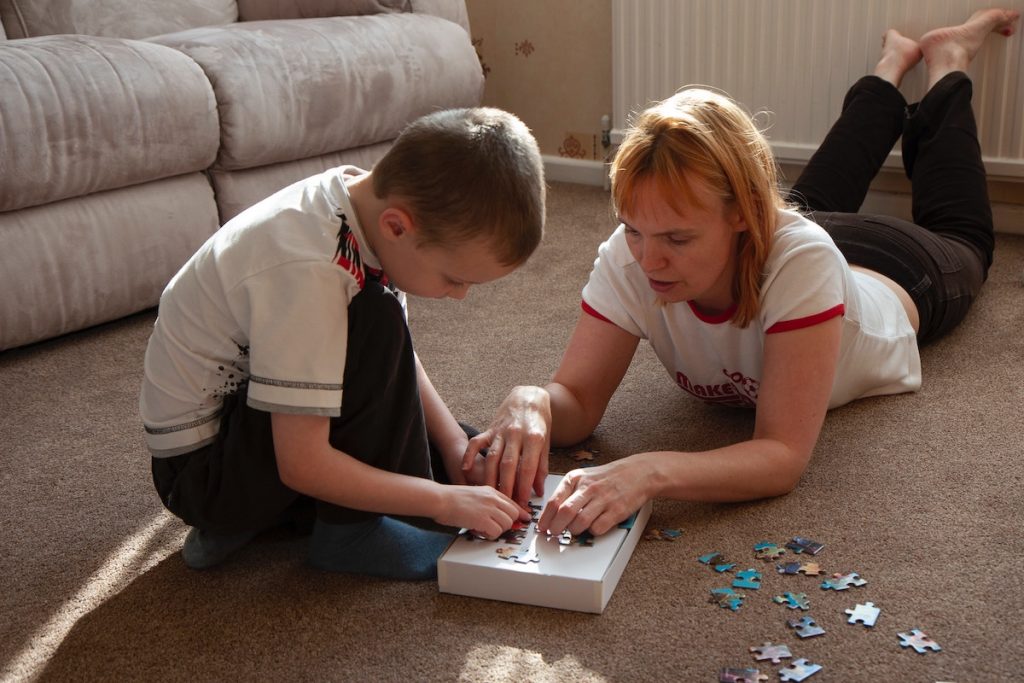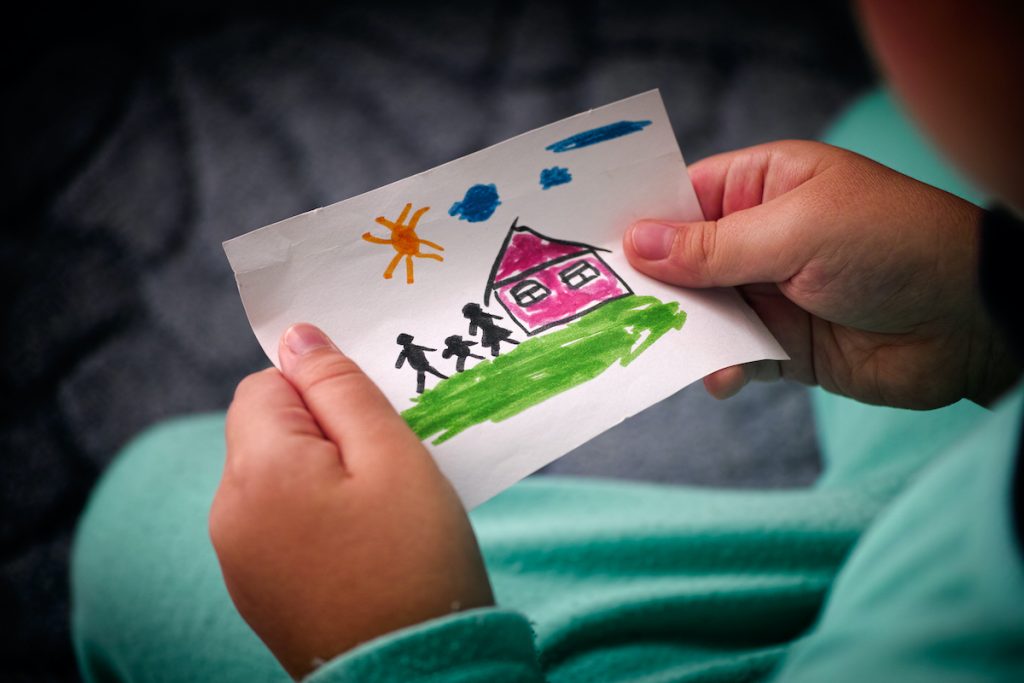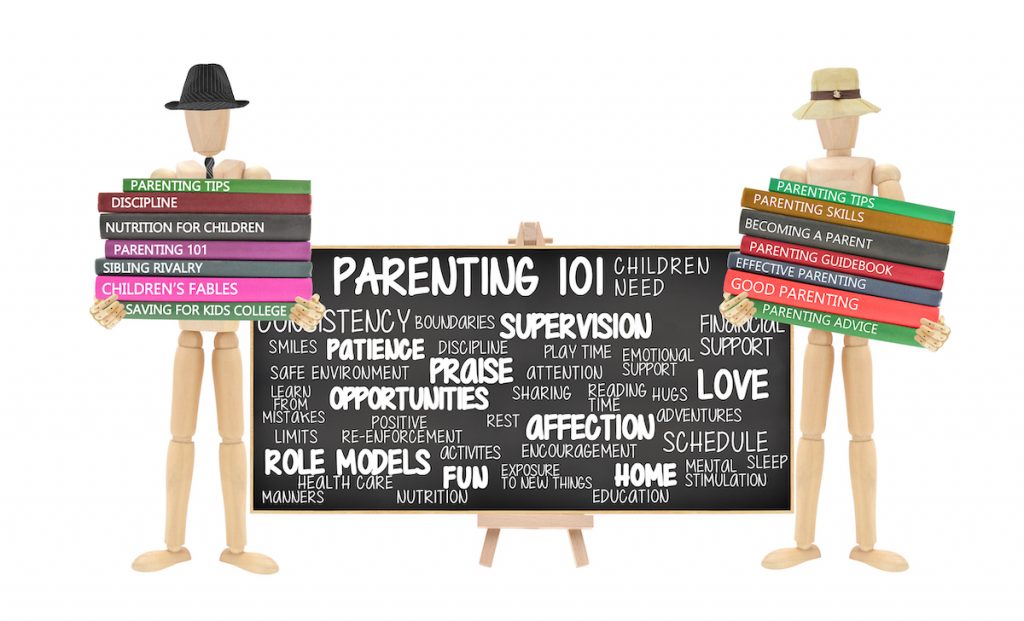
Poor quality institutional child rearing, such as the Romanian orphanages which were commonplace in the 1980s and 1990s, can be considered a severe form of child neglect. These orphanages were severely depriving environments, in which little social and emotional stimulation was provided, leading to negative consequences on children’s health and wellbeing.
Research following up on children from Romanian institutions who were later adopted has taught us a lot about the impact of early adversity on psychosocial development. An example is the English and Romania Adoptees (ERA) study (Rutter et al., 2010) which has examined the impact of being adopted into affluent, caring UK families since the early 1990s.
The ERA study showed evidence of ‘deprivation-specific psychological problems’ in the adoptees. Those who experienced more than six months of institutional deprivation had, on average, higher levels of social communication problems, social disinhibition, difficulties with attention, and impairments in cognitive ability in childhood (Rutter et al., 2010). Many of these problems continue into young adulthood and predict poorer outcomes, for example, lower rates of unemployment, lower educational attainment, and more mental health problems (Sonuga-Barke et al., 2017). Importantly, this is all despite many years in warm and loving families and high service utilisation.
Alongside this, very little is known about the support needs of adoptees as they get older and take on new roles, for example, when they transition into being parents themselves. This may be especially important given that care-experienced individuals are more likely to have their own children taken into care (Roberts, Meakings, Forrester, Smith, & Shelton, 2017) and more general concerns around the inter-generational transmission of adversity.
This blog presents an overview of two studies (Edwards and Kennedy et al. and Edwards et al.) with the ERA families that cover different aspects of support needs of young adult adoptees.

Severe, prolonged deprivation has negative impacts on child development, which frequently persist into later life.
Methods
Semi-structured interviews were conducted with the adoptees (at around 25 years) and their adoptive parents.
15 families (14 Romanian adoptees who had become mothers, and 15 adoptive parents) were asked about the transition to parenthood and the positives and challenges in the first Edwards and Kennedy et al paper. In addition, 18 families (16 Romanian adoptees with elevated hyperactive and inattentive problems as teenagers, and 18 adoptive parents) were asked about perceived support needs and what helped and hindered accessing support in the second Edwards et al. paper.
Interviews lasted around 30-40 minutes and were recorded and later transcribed for analysis. Themes were drawn inductively from the interviews.
Results
Two overarching themes were generated on parenthood: 1) positive consequences, and 2) significant challenges, over and above general parenting challenges (sometimes involving care proceedings) for a minority (20%) of mothers. Three overarching themes emerged on general support needs: 1) worries about adoptee’s future, 2) concerns about difficulties in decision-making in daily life, and 3) difficulties obtaining desired support.
For adoptees who became mothers, a sense of connectedness and completeness and feelings of pride and achievement came with having a relationship with a biological relative, which was often for the first time. Having a baby brought improved familial relationships with adoptive parents and greater social connectivity with others. Becoming a parent also acted as a motivator for personal growth, with mothers becoming more emotionally and financially independent.
She’s met new friends in shops or with nursery schools and toddler groups. (Adoptive Parent)
A common theme that emerged from both sets of interviews related to struggles with daily life skills and identifying consequences and risks, making the adoptees vulnerable to victimisation. This led to concerns about their ability to live independently, manage their own finances, and obtain suitable employment. For adoptees who had become mothers, this meant that adoptive parents or partners were relied on for day-to-day support. In some cases, adoptive parents assumed a primary caregiving role for their grandchild.
They have never had the skills… I mean she probably could fill in the form in, [they] just don’t have the confidence to do it. So we have to fill the form in, go through it with [them] and then get [her] to sign it. That sort of thing is happening all the time. (Adoptive Parent)

Parenthood brought many positives, but significant challenges were experienced by a minority of the adoptees who became mothers.
Difficulties in obtaining appropriate help and support were often experienced, and deprivation-related problems were not well understood. This led to strain on adoptive parents and made adoptees less likely to engage with interventions and services in the future. Where talking therapies were accessed, this was generally viewed as positive.
They were struggling a little bit at this and a little bit at that and you can’t quite label him because he hasn’t quite got total dyslexia, he hasn’t got this and he’s not quite got something else, so, therefore, he doesn’t fall in the right categories. But if you look at him globally, there’s a person there struggling every day who isn’t being helped. (Adoptive Parent)
This also transpired into the transition to parenthood. Accepting advice and support from adoptive parents was challenging for some of the mothers resulting in negative reactions. Involvement of social service was generally experienced as punitive, rather than supportive.

Adoptees in this study reported difficulties with daily life skills and felt that obtaining appropriate support was challenging.
Conclusions
For some, neurodevelopmental problems associated with severe, prolonged early deprivation persist into young adulthood and are a source of impairment. These qualitative findings make several additions to what we know. First, there appears to be a general lack of awareness among service providers around how these difficulties manifest and the problems they raise, and consequently, people in this group struggle to get appropriate support. Second, the difficulties described by the cohort mainly revolve around decision-making, obtaining employment, and managing independent living. Third, these problems impact the ability to safely parent, in a minority of cases. These findings also carry two messages of hope. One is that when appropriate support was obtained, it was often seen as helpful, and becoming a parent was associated with a range of important positive experiences.

Support services should address the unmet needs of young adult adoptees by offering psychosocial interventions and teaching life skills.
Strengths and limitations
This is one of the first explorations of the impact of severe forms of neglect on the adoptee’s transition into young adulthood. The use of qualitative research methods enabled the perspective of both the young adult adoptee and their adoptive parents to be captured. The themes that emerged from these interviews led to the identification of new areas of support, such as difficulties with numeracy impacting financial independence, that have not been previously reported in existing research using quantitative methods.
There are limitations to the two studies that the authors acknowledged. The sample is a unique group of young people who experienced time-limited extreme deprivation in early life before being adopted into supportive, affluent UK families. This means that it is somewhat unclear whether findings directly translate to adoptees with different experiences of adversity. Furthermore, the interviews did not obtain perspectives on experiences of some aspects of support provision such as education and law enforcement, so the findings may not generalise to these areas, or to support provision outside of the UK. Lastly, the number of adoptees and adoptive parents taking part in the interviews was small in size, and other adoptees in the English and Romanian Adoptee study may have different experiences.

Qualitative research methods effectively captured the voices of the young adult adoptees and their adoptive parents.
Implications for practice
There are several key implications for practice and research. First, the study highlights a range of needs of young adult adoptees for which support was difficult to obtain. One example was difficulties in organisational skills, which may be an outcome of deprivation-specific problems. However, there was a lack of understanding from services about deprivation-specific issues which meant needs were not being met. This is particularly concerning given the vulnerability of this group of young people. Support services should be in place to offer adoptees interventions throughout adulthood as they transition to more independent lives and take on new roles. For example, teaching organisation and time management skills could be offered, which is likely to have a positive impact on multiple aspects of their lives. The Adoption Support Fund which is available to cover costs of therapeutic services is only available for adoptees up until the age of 21 years, or 25 years for those with an Education, Health and Care Plan. There are some organisations that focus on supporting adults who were adopted as children, such as Post-Adoption Centre, but services focus mainly on counselling. Other support services addressing functional outcomes are required to assist adults who were adopted as children.
Second, the study suggested that a minority of the adoptees who became mothers had significant difficulties with parenting. This highlights a group of potential parents who may require more support transitioning into parenthood and early tailored support could be provided through health visiting services, with an aim of reducing later, more costly social service intervention.
Third, the research highlights the value of using qualitative methods to explore adoptee’s experiences. Understanding the impact of neglect on development, and the emergence of neurodevelopmental difficulties is an under-studied area. Given neglect is the most common reason children enter care, further research should be undertaken to help understand support needs. In addition, research that follows up adoptees into middle and old age should be conducted to get a better understanding of support needs as they age and transition into new life roles.

Adoptees need to be supported throughout adulthood as they transition to independent lives and become parents themselves.
Statement of interests
Melanie Palmer is a postdoctoral research associate and Anna Wyatt is a research assistant, both in the Department of Adolescent & Child Psychiatry, Institute of Psychiatry, Psychology & Neuroscience, King’s College London. They are colleagues of the authors of the studies, but had no involvement in the reported studies.
The studies represent independent research part funded by the National Institute of Health and Care Research (NIHR) Maudsley Biomedical Research Centre at South London and Maudsley NHS Foundation Trust and King’s College London. The views expressed are those of the author(s) and not necessarily those of the NIHR or the Department of Health and Social Care.
Listen to the accompanying podcast
Links
Primary paper
Edwards, C., Kennedy, M., Knights, N., Kovshoff, H., Kreppner, J., Maughan, B., & Sonuga-Barke, E. J. (2023). When people adopted from severely depriving institutions become parents: The experiences of young adult mothers from the ERA study and their adoptive parents. Adoption & Fostering, 47(4), 415-433. https://doi.org/10.1177/03085759231212500
Edwards et al. (2023) Neurodevelopmental problems in adulthood following severe early deprivation: A qualitative analysis of clinical needs and service use experiences. Adoption and Fostering.
Other references
Roberts, L., Meakings, S., Forrester, D., Smith, A., & Shelton, K. (2017). Care-leavers and their children placed for adoption.Children and Youth Services Review, 79, 355-361. doi:10.1016/j.childyouth.2017.06.030
Rutter, M., Sonuga-Barke, E., Beckett, C., Castle, J., Kreppner, J., Kumsta, R., . . . Gunnar, M. R. (2010). Deprivation-specific psychological patterns: Effects of institutional deprivation. Monographs of the Society for Research in Child Development, 75(1), i-253. Retrieved from http://www.jstor.org/stable/40608153
Sonuga-Barke, E. J. S., Kennedy, M., Kumsta, R., Knights, N., Golm, D., Rutter, M., . . . Kreppner, J. (2017). Child-to-adult neurodevelopmental and mental health trajectories after early life deprivation: The young adult follow-up of the longitudinal english and romanian adoptees study. The Lancet, 389(10078), 1539-1548. doi:10.1016/S0140-6736(17)30045-4
Early life deprivation, neurodevelopment, mental health and resilience: ERA study
Photo credits
- Photo by Nikola Jovanovic on Unsplash
- Photo by Alexander Grey on Unsplash
- Photo by Ben White on Unsplash
- Photo by Christina on Unsplash
- Photo by Anthony Wade on Unsplash
